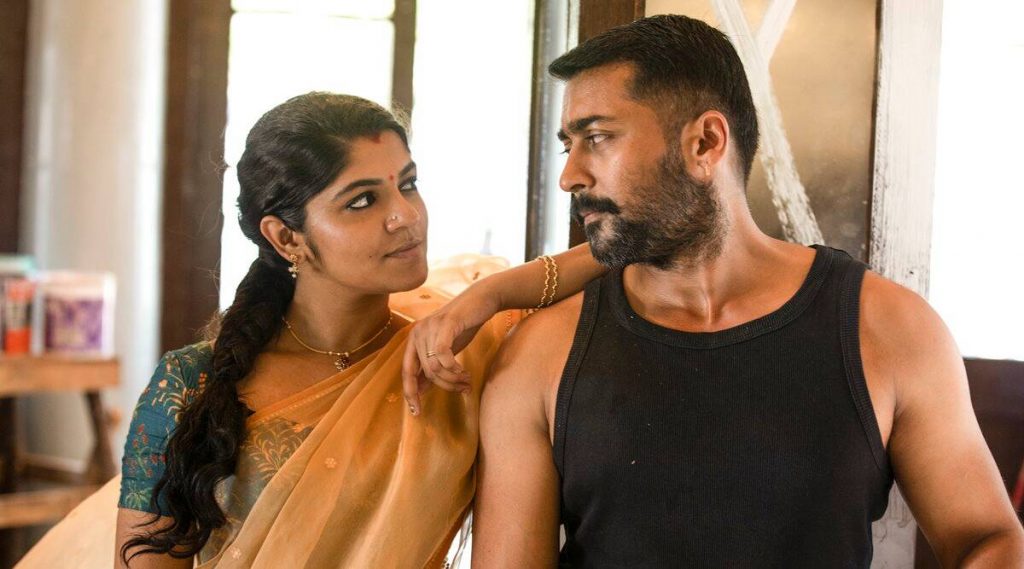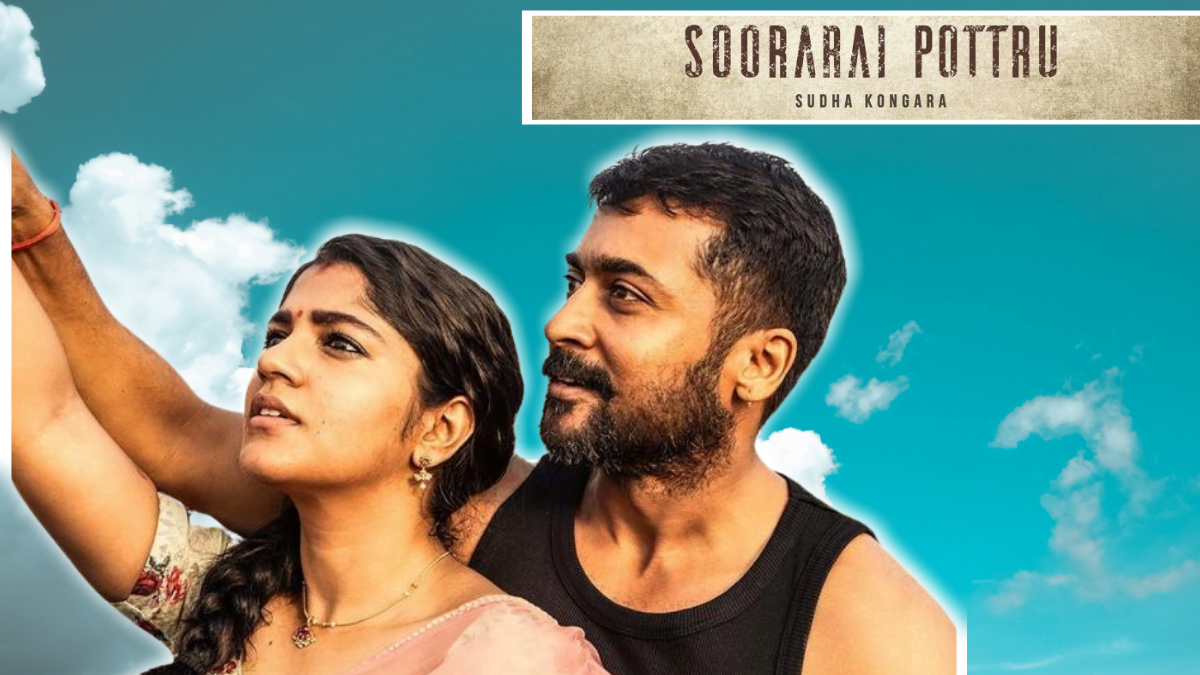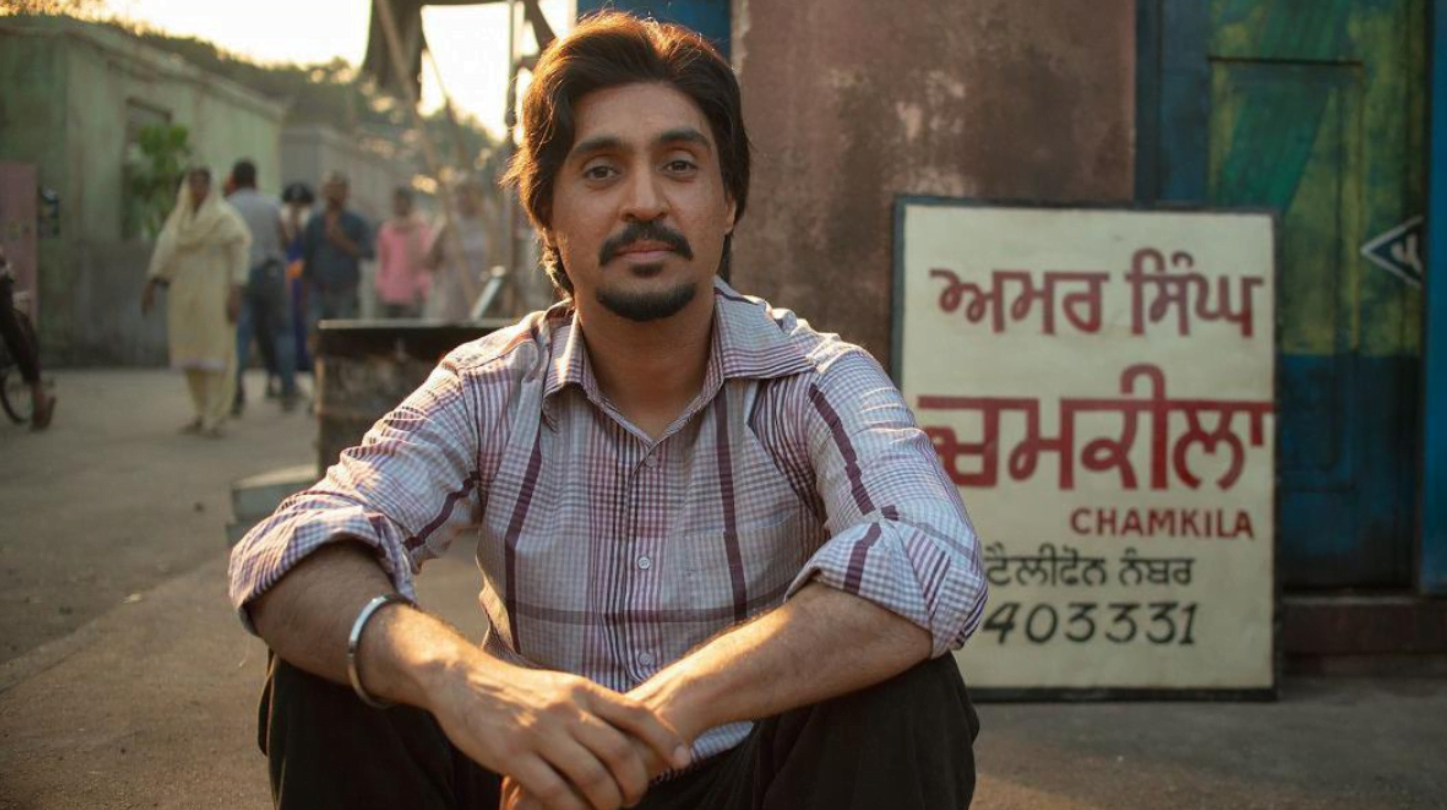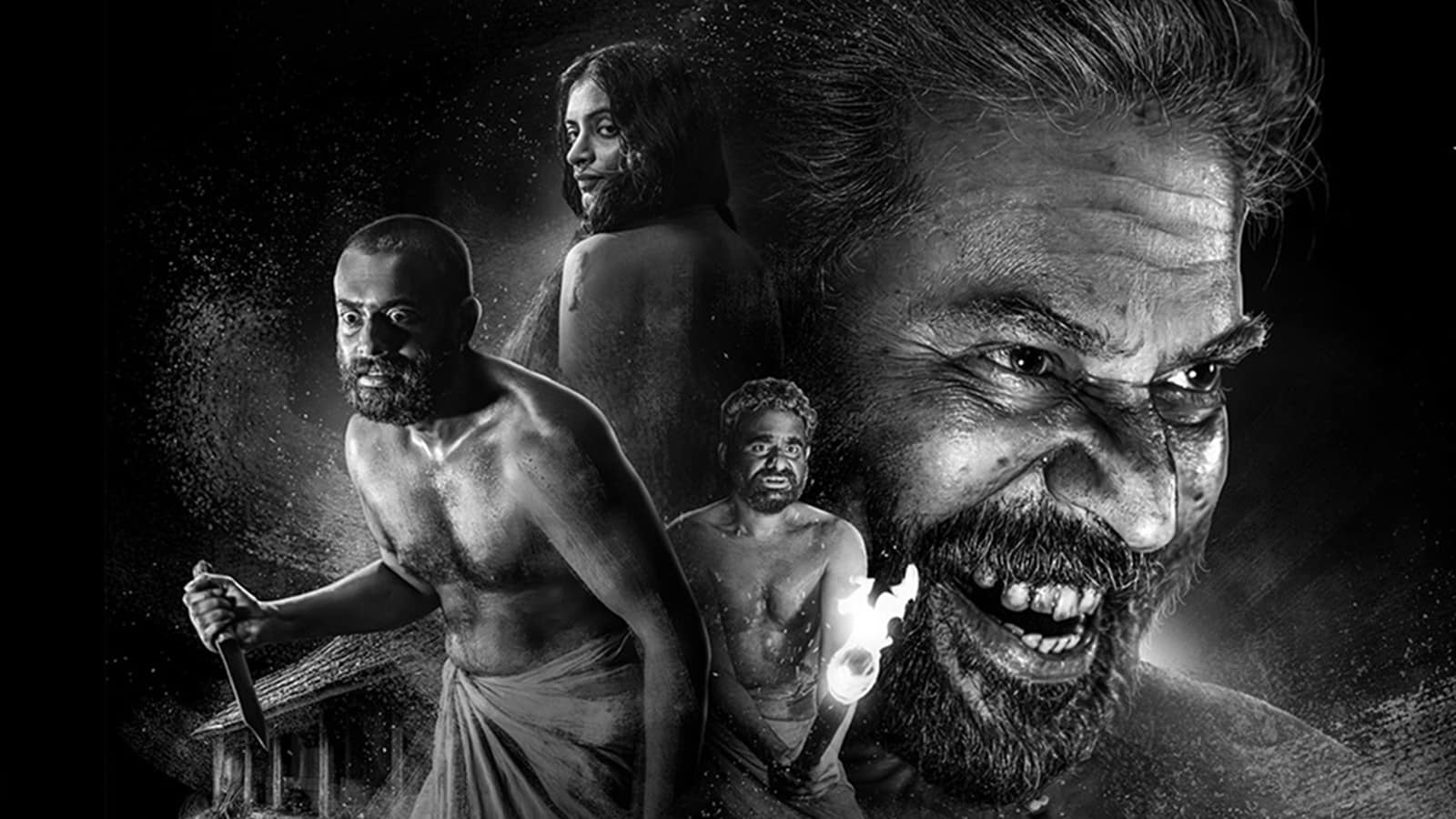Soorarai Pottru is the multi-starrer book-to-film adaptation of Capitain Gopinath’s autobiography Simply Fly: A Deccan Odyssey. In this book, Gopinath wrote about the struggles that he faced in his pursuit to launch a low-cost airline service. Directed and written by Sudha Kongara (of Irudhi Suttru/Saala Khadoos fame and more recently, Putham Pudhu Kaalai), the film stars Suriya, Aparna Balamurali, and Paresh Rawal as the main cast, with Urvashi and Mohan Babu in strong supporting roles.
Suriya as Maaran has made a splash for one of his most recognised roles in almost a decade, with critics and fans alike likening it to being as legendary as Gautham Menon’s Vaaranam Aayiram. The character is well written, with many complex conflicting shades of his personality—marred by loss, ambition and masculinity. Aparna Balamurali steals the show as his wife Bommi, an equally ambitious woman determined to make her entrepreneurial venture a success. Urvashi strays away from her traditional comedic roles, fully intending to bank on her legendary acting chops as Pechi. Paresh Rawal plays the antagonist Paresh Goswami, a caricature sketch of croony capitalism intent on suppressing dreams of equality.
Soorarai Pottru is the multi-starrer book to film adaptation of Capitain Gopinath’s autobiography Simply Fly: A Deccan Odyssey. In the book, Gopinath wrote about the struggles that he faced in his pursuit to launch a low-cost airline service.
Suriya departs from the classically venerated Tamil mass hero depiction with Maaran; he becomes a hero we may not always agree with, yet deep down root for. His various qualities are a result of his experiences, and one learns to go with the ebb and flow of his character development. The non-linear plot structure, jumping between timelines serve to build a “why” for the audience, but falters at times. Nevertheless, the raw ruggedness of Maaran (an intensity that only Suriya can bring) is contrasted by his scenes with his wife Bommi, full of a playful mirth and mutual respect brought out by both actors.
Also read: Film Review: ‘Bulbul Can Sing’ Is A Story Of Hope From…
Bommi and Maaran: A Marriage of Equals
She’s not the archetypical Tamil heroine—she’s unconventional, inquisitive, talks back to elders, wants to start her own shop and doesn’t fit into conventional standards of beauty with her duskier skin and non-size zero figure. But the sparkle in her eyes and the razor-sharp wit make Bommi one of the most memorable characters of movies to come. She isn’t reduced to the hero’s wife; Kongara gives Bommi’s character room to be herself, hold her own against the hotheaded Maaran (her 3 pre-nuptial conditions are a testament to her ethos) yet not overpower their dynamic.

Both Maaran and Bommi are shining beacons of an egalitarian marriage, but with a rather realistic portrayal—we don’t see them as suddenly becoming perfect, but they actively work on being better spouses to one another. She’s independent and self-sufficient, with the full intention of staying that way. She encourages him by being his backbone. They butt heads (visually and metaphorically, with Harish Sivaramakrishnan crooning Veyyon Silli) but remain each other’s best support systems, with neither diminishing the others’ dreams.
And the one time that Maaran does, Bommi doesn’t back down, standing up for her dreams without making it a matter of contention in the relationship. This is a significant moment for Tamil cinema, depicting egalitarian marriages on such a mass level, hence setting the bar for better representations of marital politics quite high.
The one thing Soorarai Pottru could have improved on is the flatness of the movies antagonists, namely Paresh Rawal. The absurdity of him randomly launching into Gujarati aside, the character could have been more fleshed out, since the lack of dimension stood out jarringly in an otherwise excellent script.
A Return to Earthy, No Nonsense Music
With G.V Prakash at the helm of the unforgettable soundtrack, featuring artists like Harish Sivaramakrishnan (of Agam fame), Govind Vasantha (Thaikkudam Bridge, and more recently the music composer for 96) and Dhee, who made a splash with Eyy Sandakara in Irudhi Suttru. The OST is rugged, earthy and true to the spirit of the film—to stay true to your roots and beliefs.
The sound track is able to achieve this and more, not straying away from its raw folk/kuthu roots, a welcome relief from the hyper-mastered remixes we see cropping up too often in Bollywood (looking at you, Deedar De). The use of heavy percussion paired with brilliantly strong vocals keep your feet tapping and head bobbing, invariably biting your lower lip ready to break into some kuthu. Notable tracks for the same vibe are Mannurundu, Kaatu Payale and Sooravali.
Get ready to add everything to your playlist.
A Missing Ingredient
The one thing Soorarai Pottru could have improved on is the flatness of the movie’s antagonist, namely Paresh Rawal. The absurdity of him randomly launching into Gujarati aside, the character could have been more fleshed out, since the lack of dimension stood out jarringly in an otherwise excellent script. Additionally, the lack of emphasis put on Maaran’s relationship with his parents—although both characters with an immensely important arc, they both make awkward entries and exits as and when the storyline pleases. However, the storyline tries very hard to pack this much into an already lengthy 183 minute run time.
Also read: Film Review: ‘Laxmii’ Is Nightmarish, Triggering And Basically Unwatchable!
Undeniable however, is the must-watch nature of this film. Sudha Kongara’s tight script and direction paired with Niketh Bommi’s genius in capturing the Tamil heartland in all its glory, you’ll grip to your seats from the word go. You’ll laugh, you’ll cry, you’ll itch to dance. Most importantly, you’ll just wish you could watch this in theatres, to elevate your ecstasy by sharing it amongst other movie-goers.
On Amazon Prime.





The film is co-written by Shalini Ushadevi, who directed and wrote the Malayalam film Akam. It’s unfair to keep mentioning only Sudha Kongara as the writer.